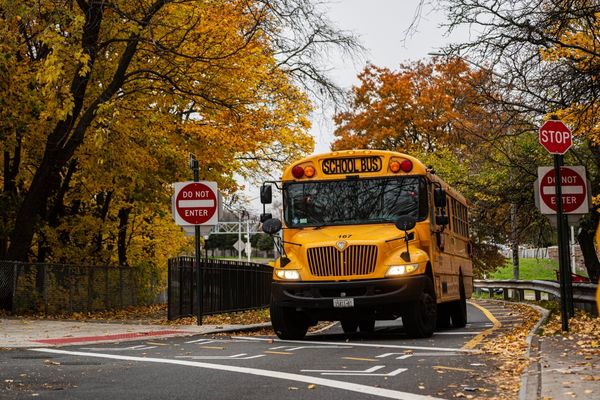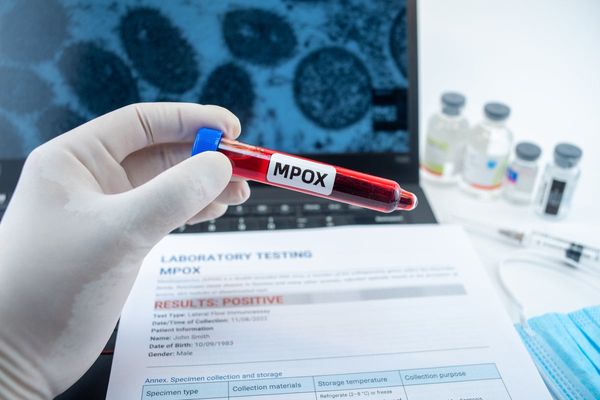Outside Craig Spencer’s apartment in Harlem, kids on bicycles pull wheelies, showing off for the ranks of TV news cameras. There must be 40-odd journalists here, eight or nine TV vans, maybe 15 or even 20 cameras pointed at the closed door of the building where New York’s Ebola Patient Zero lives.
A crowd has gathered to watch the cameras, which are trained on the door. Spencer is not here, of course – he’s at Bellevue hospital – but there are rumours among the camera crews that specialist team will be arriving soon to sweep the apartment.
There are people selling street food. Say one thing for this city: when the apocalypse comes, there will be churros.
At a Dunkin’ Donuts a block away, patrons mock the earnestness of the TV reporters. Cashier Lynn Butts wonders if Spencer ever bought coffee here. “I was thinking his face was familiar,” she says.
She says she’s scared – a little – by the thought of Ebola arriving in her neighbourhood, but not scared enough to stay home. “New York can deal with it,” she says.
Since 9/11, one of the identifying cliches New Yorkers carry around with them, alongside “the city that never sleeps”, is the idea of resilience. This is a city that doesn’t cower.
Even so, New York’s fight-or-fight response has not been triggered. After the world watched Texas fumble its response when Thomas Duncan came down with the disease last month, New York isn’t taking any chances.
Which is not to say that everyone is unafraid. Stan Malone, who says he lives across West 147th Street from Spencer, claims the whole neighbourhood is worried. “People want to know why they haven’t quarantined his entire building yet. Ebola is here in the city, and you can bet this won’t be the last case,” he says.
Malone says he had an aunt, an uncle and two cousins who lived two floors away from Spencer in the same building. They moved to a hotel on Thursday, he says, and want to be tested for the virus today.

But he seems to be the exception. Maybe it’s a consequence of the confidence radiated by the authorities that the situation is completely under control, or maybe not, but there is no real sense of present danger on the streets. The subways are still full, the streets still busy. People are not panicking.
Jose Vasquez also lives across the street from Spencer’s apartment. When asked if he’s worried, he cocks his head to one side and says “Ah,” then grins. “Fifty percent,” he says, smiling and wiggling his flattened palm to symbolize ‘so-so’.
“We have to worry a little. It is dangerous,” he says. “People with lots of money, they can get medical care. People with less money …” He says he’s not frightened, though. “Nah. Not too much.”
For most New Yorkers, it seems that the city’s first case of Ebola barely even registers.
There isn’t much fear on the subway, unless you count the odd person neurotically rubbing their hands with Purell – which you can’t, really, because this city hums with neuroses like that pretty much all of the time. It’s a baseline.
You can spot someone wearing a mask in line at the deli, perhaps, but then again that’s not unheard of. There may have been one or two more face masks than usual on the subway this morning – or, then again, there may not; the train conductor on the northbound 1 train isn’t sure. He thinks for a while, and says he has seen one mask, maybe, and that’s about normal. “Ebola isn’t airborne, anyway,” he says with authority.
Has he seen people showing signs of worry? He shrugs. “Newspapers,” he says, cryptically and perhaps slightly accusingly.
Annie Hang, an administrative assistant living in Brooklyn, stands on the platform of the A-C-E line at West 4th street, waiting for the northbound train. She is listening to her iPod – like many New Yorkers, hermetically sealed in mind, if not in body.
Is she worried about taking the train? “More about holding the poles,” she laughs. She always uses hand sanitizer, she says. “I am always mindful of what I am touching now.” She’s not really that worried. “There’s nothing I can do about it. So …” She shrugs.
Peter Nicholas lives a few blocks from the bowling alley visited by Spencer on Wednesday night. Asked if he was worried about Ebola now that it had come to New York, Nicholas says no, “but my mom is.” He is waiting at the Bedford Avenue L station in Williamsburg for a train into Manhattan on Friday morning. “I don’t really care,” he says.
“This is New York,” says Roy Bell, a singer with an a capella group busking on the R train which follows Broadway north as far as Times Square. “It’s gotta spread a lot before we start to panic.” Strangers on the train nod in agreement.
On the northbound 3 train, two tourists chat with a young American guy in a backpack. At 72nd street, the two stand up to leave the train, gathering their luggage and shopping bags. “This is our stop. Nice chatting with you!” one of them says, and then, by way of a sardonic farewell, adds: “Don’t get Ebola!”
The kid grins.
Erin McCann and Jana Kasperkevic contributed reporting.







